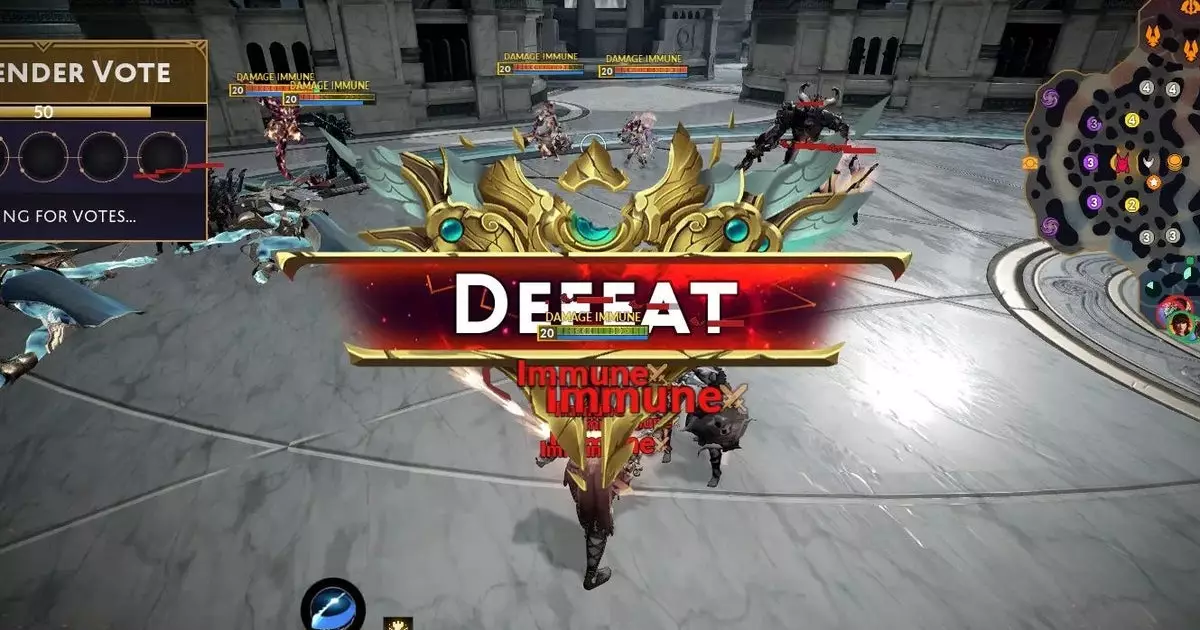The gaming industry has recently witnessed a troubling trend: layoffs and studio closures. Hi-Rez Studios, renowned for their multiplayer online battle arena (MOBA) games, is the latest victim of this unsettling phenomenon. Only a month after the launch of their highly anticipated MOBA sequel, Smite 2, the studio has implemented significant workforce reductions. This article dissects the situation at Hi-Rez, the impact on its games and community, and reflects on the broader implications for the gaming industry.
The Layoff Landscape
In a move that has left many within the gaming community scratching their heads, Hi-Rez Studios has confirmed that a significant number of its employees have been laid off. While exact numbers remain elusive, estimates suggest that between 20-60 employees have lost their jobs. The layoffs include a diverse range of roles, from programmers and UI artists to marketing personnel and producers. This broad spectrum reflects not only the difficulties faced by the studio but also the substantial challenges inherent in the gaming industry as a whole.
The layoffs were framed within the context of “challenging market conditions,” according to the studio’s communication on Discord. The decision was made in hopes of ensuring the sustainability of Smite 2, which they are now prioritizing over their long-standing titles, such as Smite, Paladins, and Rogue Company. While these games will remain playable, they will not receive any further updates—an unsettling prospect for fan-favorite titles that have built robust communities over the years.
Impact on Ongoing Projects
The ramifications of these layoffs extend beyond individual employees, affecting the gaming ecosystem that Hi-Rez has cultivated over the years. By ceasing updates on long-term projects, Hi-Rez is effectively sending a message that they are reallocating their resources and efforts towards Smite 2 alone. This decision raises questions about the studio’s commitment to their existing loyal fanbase and what it means for the longevity of these games.
The studio’s CEO, Stewart Chisam, reportedly deleted his social media account in the wake of the announcements, which adds to the air of uncertainty surrounding the company’s leadership and direction. The studio’s statement indicates that they are aiming for a “steady flow of new content” for Smite 2, but at what cost? The casual abandonment of established titles without the support of dedicated teams could alienate players who have invested time and money into these experiences.
Diving deeper, it is crucial to assess the viability of Hi-Rez’s strategy in concentrating all their resources on Smite 2. A recent review mentioned that the game, while ambitious, may not deliver the excitement that is necessary to attract and retain players in an increasingly crowded MOBA market. Competitors like Valve’s Deadlock are emerging with promising offerings, leading to concerns that Smite 2 might not stand out enough to warrant such a heavy investment of resources.
Furthermore, the repeated cycles of layoffs at Hi-Rez beg the question of operational inefficiency within the studio. This is not the first round of job cuts; earlier layoffs in June had already indicated troubles brewing in the company’s operations. It appears as though Hi-Rez is attempting to streamline their efforts, but this strategy might overlook the complexity of the gaming landscape.
Hi-Rez’s prioritization of a single game at the expense of its other titles reflects a broader trend within the gaming industry: studios are feeling the financial pressure to deliver results quickly. This has often led to drastic decisions that not only affect employee morale and job security but also diminish the quality and diversity of the gaming experiences available to players.
As players, developers, and stakeholders observe the difficulties faced by studios like Hi-Rez, it creates a ripple effect. Concerns about job security can stifle creativity, while the fear of layoffs looms over the industry. It’s a sad reality that many talented individuals contribute to an industry that is at odds with its workforce.
Hi-Rez Studios stands at a precarious crossroads. The decision to focus solely on Smite 2 while sidelining other impactful games may have short-term benefits, but at what cost? The trauma of layoffs highlights the need for a more sustainable business approach—one that balances innovation with job security, passion with profitability, and community engagement with corporate goals. As the gaming industry continues to evolve, it must confront the realities of its practices and the implications they carry for all involved.

